A few months ago we have launched an experimental website. In brief, our goal is to create a platform where unrestricted freedom of speech would be combined with high quality of discussion. The problem can be approached from two directions. One is to help users navigate through content and quickly locate the higher quality posts. Another, which is the topic of this article, is to help users improve the quality of their own posts by providing them with meaningful feedback.
One important consideration for those who want to write better comments is how much detail to leave out. Our statistical analysis shows that for many users there is a strong connection between the ratings and the size of their comments. For example, for Yvain (Scott Alexander) and Eliezer_Yudkowsky, the average number of upvotes grows almost linearly with increasing comment length.

This trend, however, does not apply to all posters. For example, for the group of top ten contributors (in the last 30 days) to LessWrong, the average number of upvotes increases only slightly with the length of the comment (see the graph below). For quite a few people the change even goes in the opposite direction – longer comments lead to lower ratings.

Naturally, even if your longer comments are rated higher than the short ones, this does not mean that inflating comments would always produce positive results. For most users (including popular writers, such as Yvain and Eliezer), the average number of downvotes increases with increasing comment length. The data also shows that long comments that get most upvotes are generally distinct from long comments that get most downvotes. In other words, long comments are fine as long as they are interesting, but they are penalized more when they are not.

The rating patterns vary significantly from person to person. For some posters, the average number of upvotes remains flat until the comment length reaches some threshold and then starts declining with increasing comment length. For others, the optimal comment length may be somewhere in the middle. (Users who have accounts on both Lesswrong and Omnilibrium can check the optimal length for their own comments on both websites by using this link.)
Obviously length is just one among many factors that affect comment quality and for most users it does not explain more than 20% of variation in their ratings. We have a few other ideas on how to provide people with meaningful feedback on both the style and the content of their posts. But before implementing them, we would like to get your opinions first. Would such feedback be actually useful to you?




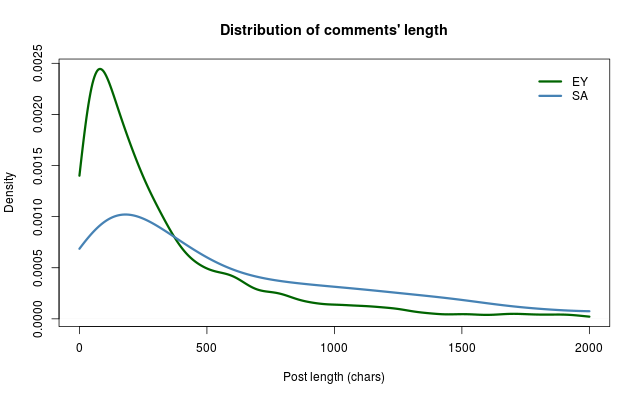
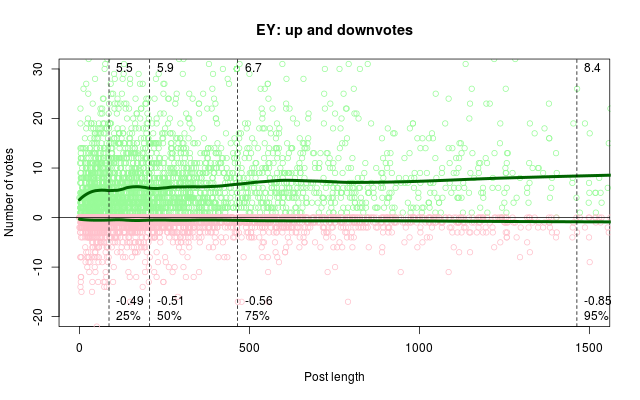
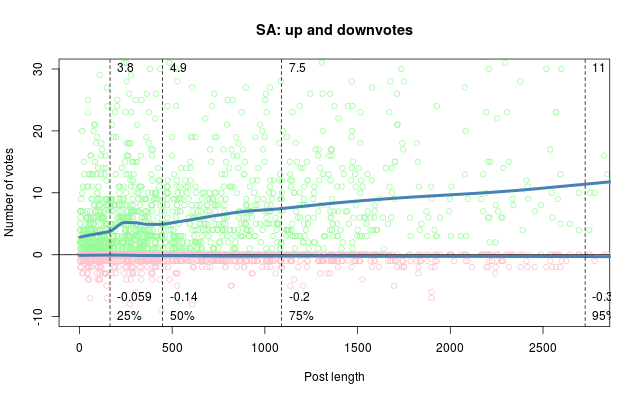
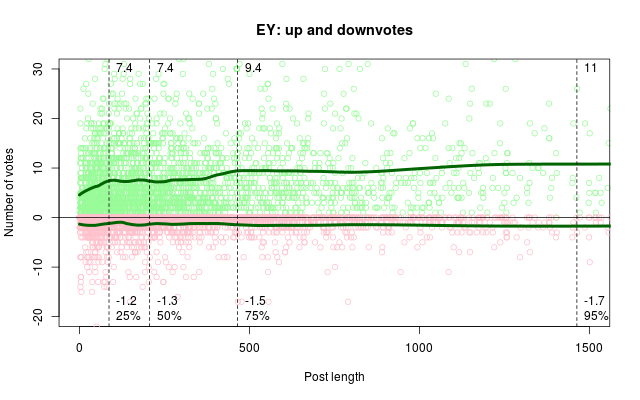
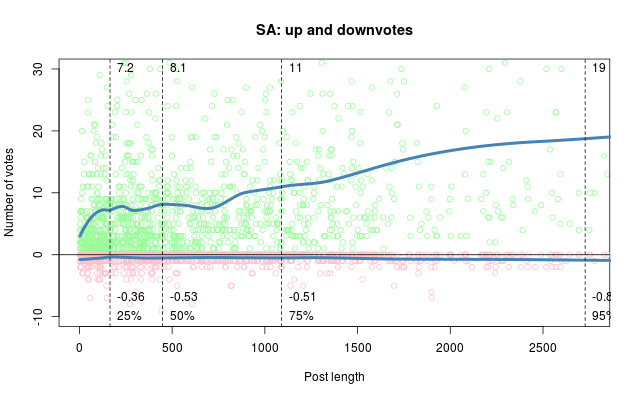
My prior expectation would be: A long comment from a specific user has more potential to be interesting than a short one because it has more content. But, A concise commenter has more potential to write interesting comments of a given length than a verbose commenter.
So while long comments might on average be rated higher, shorter versions of the same comment may well rate higher than longer versions of the same comment would have. It seems like this result does nothing to contradict that view but in the process seems to suggest people should write longer comments. The problem is that verbosity is per-person while information content is per-comment. Also verbosity in general can't be separated from other personal traits that lead to better comments.
You could test this by having people write both long and short versions of comments that appear to different pools of readers and comparing the ratings.